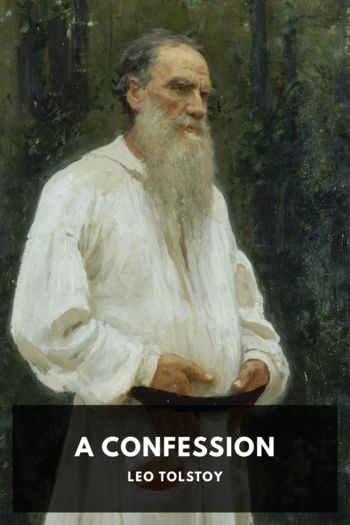Short Fiction by Leo Tolstoy (book reader for pc TXT) 📕

- Author: Leo Tolstoy
Book online «Short Fiction by Leo Tolstoy (book reader for pc TXT) 📕». Author Leo Tolstoy
I had seen Potemkin once or twice. This huge, greasy, one-eyed monster was terrible.
The thing that awed me most about him, though he used to play with me and call me your Highness, was the fact that he never seemed afraid of my grandmother, like other people, but would speak boldly in her presence in his gruff, bellowing voice.
Another man whom I frequently saw in her company was Lanskoy. He was nearly always with her. The whole Court hovered about him and made much of him. Needless to say I did not understand who Lanskoy was at the time, and liked him. I was attracted by his curly hair, his shapely legs in tight elk-skin breeches, his happy, lighthearted smile, his diamonds and jewels, glittering all over him.
It was a time full of gaieties. We were taken to Tsarskoye Selo, we rowed on the river, we busied ourselves in the garden, we went out walking and riding. Constantine, a chubby, red-haired little boy, un petit Bacchus as grandmother used to call him, kept us amused with his lively fun. He used to mimic everybody, including Sophia Ivanovna and even grandmother herself. One event of that time impressed itself on my memory. This was the death of Sophia Ivanovna Benkendorf. She died one evening at Tsarskoye in grandmother’s presence. Sophia Ivanovna had just brought us in to her and was talking and smiling, and suddenly her face changed, she reeled, leaned up against the door for support, and fell down senseless. People came running in and we were taken away. The next day we heard that she was dead. I cried very much, felt very miserable, and would not be comforted. They all thought that I was grieved about Sophia Ivanovna, but that was not true. I cried at the thought that people should have to die; that there should be such a thing as death in the world. I could not comprehend, could not believe, that it was the inevitable fate of all men. I remember how, in my five-year-old soul, there rose up questions about the meaning of death and the meaning of life that ends in death. Those vital questions confronting all men, to which the wise have tried to seek an answer in vain, and the foolish have tried to ignore and forget. As is natural to a child, particularly one in my position, I dismissed the terrifying idea of death from my mind; forgot about it as if it did not exist.
Another important event of that time which came as a consequence of Sophia Ivanovna’s death, was that we passed over into the charge of a tutor. He was Nicolai Ivanovich Saltikov—not the Saltikov who, in all probability, was our grandfather, but Nicolai Ivanovich, who had been attached to my father’s Court. He was a little man, with an enormous head and a stupid-looking countenance, on which there was a constant grimace. Constantine used to imitate it beautifully. This change necessitated parting with my dear Praskovia Ivanovna, my old nurse.
Those who have not had the misfortune of being born in a royal house can hardly imagine the distorted view we have of people, nor our false attitude towards them. Instead of being instilled with a sense of dependence on our elders natural to children, or with a sense of gratitude for all the good we enjoyed, we were made to believe that we were some kind of superior beings whose every wish must be gratified. Beings who, by a single word or smile, not only paid for all the kindness showered upon them, but were even conferring some sort of favour, making others happy.
It is true that politeness was expected of us; but by a peculiar childish instinct, I soon saw that we were not meant to be polite for the benefit of others, but merely so as to enhance our own grandeur.
I remember one festive day. My brother, Saltikov and I were driving along the Nevsky. We sat on the front seat, with two powdered footmen in red livery standing behind. It was a beautiful day. Constantine and I were dressed in uniforms, unbuttoned in front, exposing our white waistcoats, on which lay the order of St. Andrew. We wore hats with feathers, which we kept raising all the time to people greeting us. The crowd stared and cheered, and ran after us—“On vous salue.” Nicolai Ivanovich kept on saying, “A droite.” As we passed the guardhouse the sentinels came running out to have a look at us. I always liked to see them. From my earliest childhood I had a passion for soldiers and military manoeuvres.
It was always instilled into us, particularly by our grandmother, who believed it least of all, that we must always bear in mind that all men are equal. But I knew somehow that those who talked about equality did not believe in it.
Once when I was playing with Sasha Galitsin, he pushed me accidentally, and hurt me.
“How dare you!” I cried.
“I didn’t mean it. It’s all right!”
I was so





Comments (0)